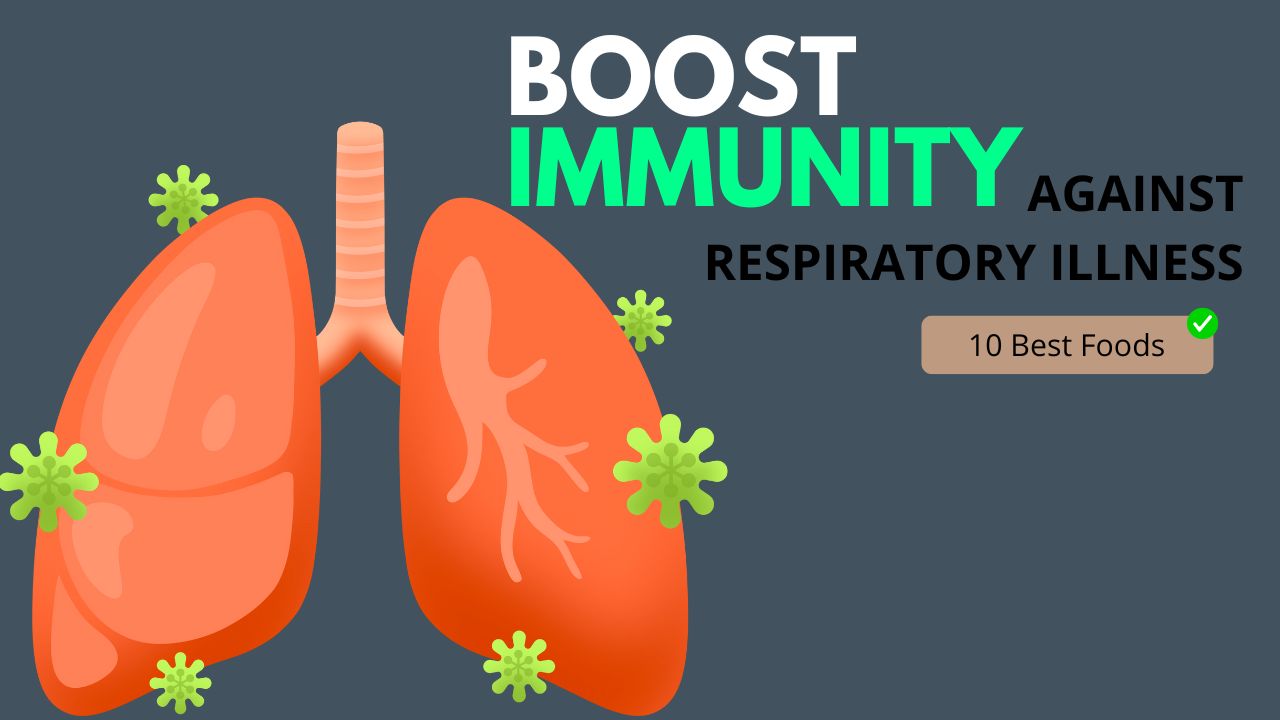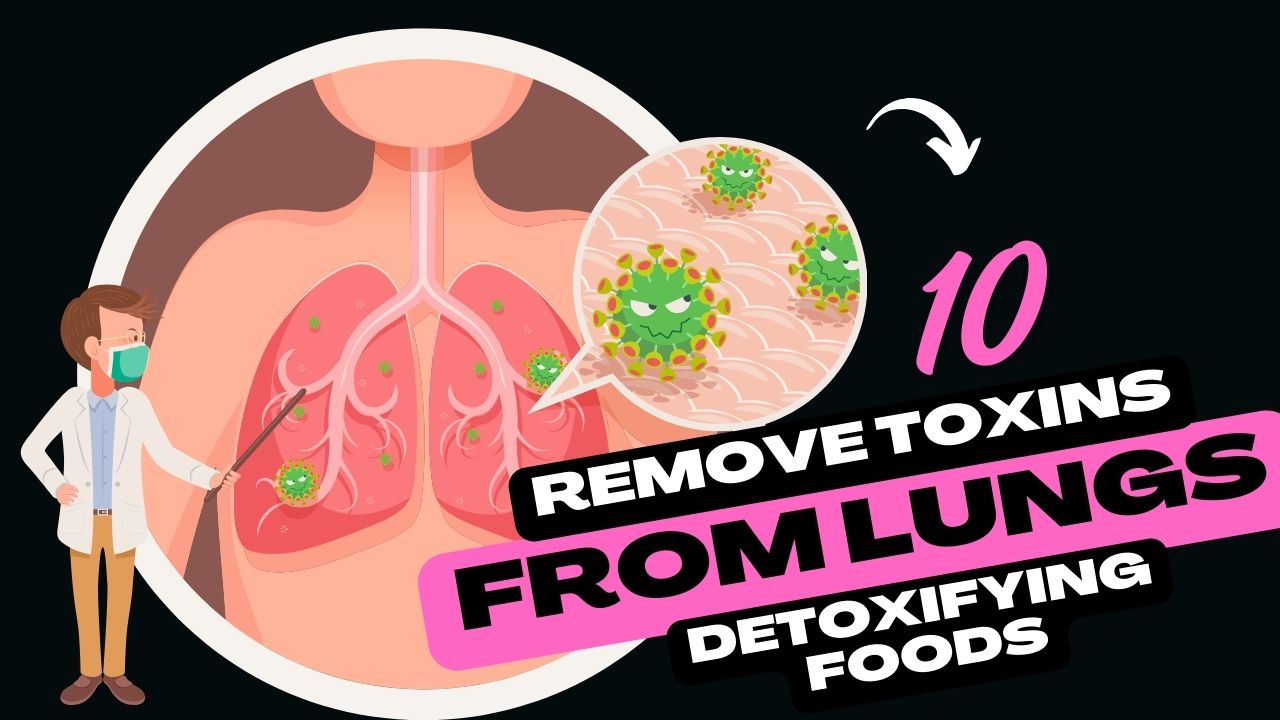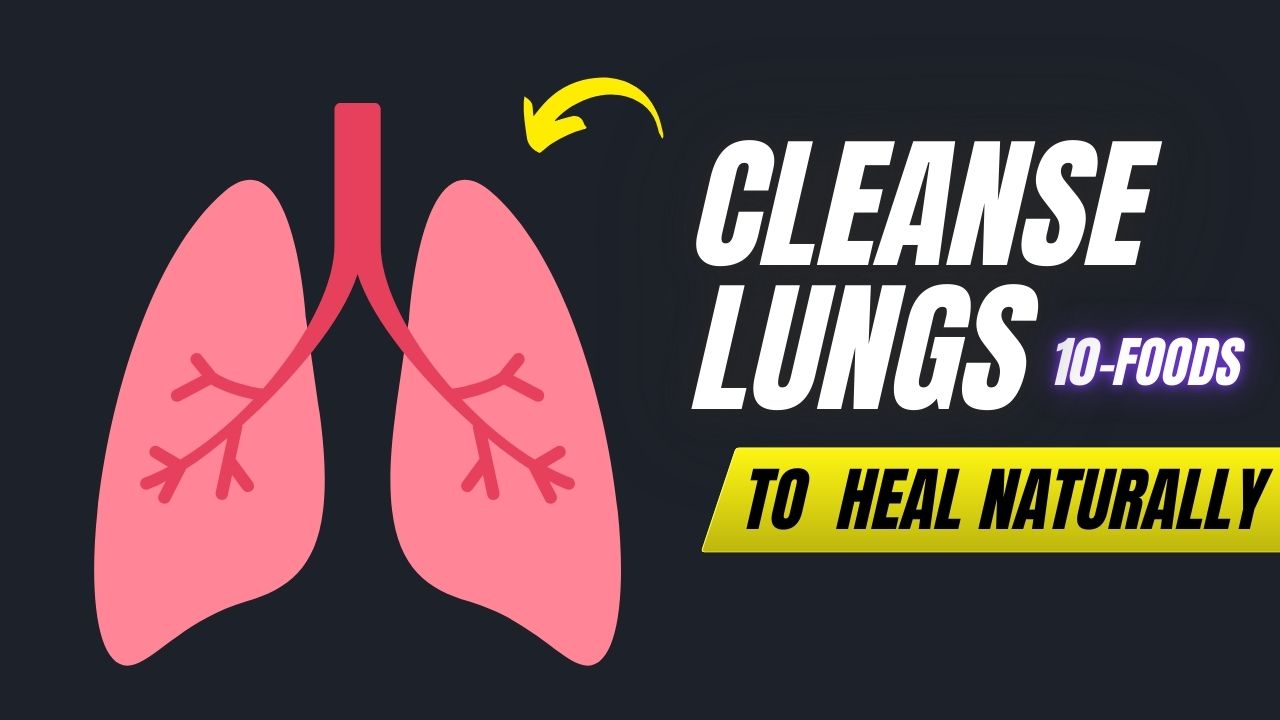Do you know that your lungs process about 11,000 liters of air every single day? They work tirelessly to keep your body oxygenated, yet most of us hardly pay attention to how to strengthen and protect them.
In today’s world of pollution, allergens, and sedentary lifestyles, lung health is under greater threat than ever before. Poor lung capacity doesn’t just affect athletes or older adults—it impacts energy levels, immunity, and even how well you recover from infections.
Here’s the good news: nature has provided us with herbal foods that can significantly improve lung function.
From ancient Ayurveda to Traditional Chinese Medicine, herbs and natural foods have been used for centuries to support respiratory health. In this guide, we’ll explore 10 powerful herbal foods that not only help clear your airways but also increase lung capacity naturally.
This post will cover:
- The top herbs and foods for stronger lungs.
- The best ways to eat or use them.
- Who should eat or avoid them.
- Storage and buying tips.
- Do’s & Don’ts.
- Possible side effects.
Let’s dive into the healing power of herbal foods that can help you breathe easier and live healthier.

Table of Contents
10 Best Herbal Foods For Lungs
1. Ginger
Best Ways to Eat or Use It
- Fresh ginger tea with honey.
- Add grated ginger to stir-fries, soups, or curries.
- Blend fresh ginger in detox juices with lemon.
Tips
- Pair ginger with turmeric for enhanced anti-inflammatory effects.
Who Should Eat / Avoid
- Good for: people with asthma, chronic cough, or smokers.
- Avoid if: you have gallstones or are on blood-thinning medications.
Storage & Buying Tips
- Buy firm, wrinkle-free ginger roots.
- Store in the fridge wrapped in paper towels.
Do’s & Don’ts
| ✅ Do | ❌ Don’t |
|---|---|
| Use fresh ginger | Overconsume (may cause acidity) |
| Combine with lemon or honey | Store in damp places |
Possible Side Effects
- Excess consumption may cause heartburn or upset stomach.
2. Garlic
Best Ways to Eat or Use It
- Raw garlic in salads or chutneys.
- Lightly sautéed in olive oil for pasta or stir-fry.
- Garlic-infused herbal tea.
Tips
- Crushing garlic releases allicin, the compound responsible for its lung-cleansing benefits.
Who Should Eat / Avoid
- Good for: those with bronchitis, chest congestion, or frequent colds.
- Avoid if: you have bleeding disorders or stomach ulcers.
Storage & Buying Tips
- Choose firm bulbs with tight skins.
- Store in a cool, dark place (not in the fridge).
Do’s & Don’ts
| ✅ Do | ❌ Don’t |
|---|---|
| Crush before eating | Consume on empty stomach if sensitive |
| Add to soups or stews | Store peeled cloves for too long |
Possible Side Effects
- May cause bad breath or digestive irritation if eaten raw in excess.
3. Turmeric
Best Ways to Eat or Use It
- Golden milk with turmeric and black pepper.
- Sprinkle on roasted vegetables.
- Mix into smoothies for a nutrient boost.
Tips
- Always consume turmeric with black pepper to improve curcumin absorption.
Who Should Eat / Avoid
- Good for: people recovering from infections, smokers, or athletes.
- Avoid if: you have gallbladder issues or are on blood thinners.
Storage & Buying Tips
- Store turmeric powder in airtight containers away from sunlight.
- Fresh turmeric roots should be kept in the fridge.
Do’s & Don’ts
| ✅ Do | ❌ Don’t |
|---|---|
| Combine with black pepper | Overuse (may cause nausea) |
| Use in warm milk or tea | Store in direct sunlight |
Possible Side Effects
- High doses can cause stomach discomfort.
4. Peppermint
Best Ways to Eat or Use It
- Peppermint tea for soothing airways.
- Fresh leaves in salads or smoothies.
- Peppermint essential oil inhalation.
Tips
- Combine with green tea for antioxidant synergy.
Who Should Eat / Avoid
- Good for: people with asthma, sinus congestion, or allergies.
- Avoid if: you have acid reflux or hiatal hernia.
Storage & Buying Tips
- Use fresh leaves for tea, or dry them for long-term storage.
- Store in airtight jars away from sunlight.
Do’s & Don’ts
| ✅ Do | ❌ Don’t |
|---|---|
| Use fresh or dried leaves | Consume if allergic to menthol |
| Inhale peppermint steam | Store in humid areas |
Possible Side Effects
- May trigger acid reflux in sensitive individuals.
5. Thyme
Best Ways to Eat or Use It
- Thyme tea for respiratory infections.
- Add to roasted meats, soups, and marinades.
- Infuse in olive oil for flavor and health.
Tips
- Steep fresh thyme sprigs for at least 10 minutes for maximum benefits.
Who Should Eat / Avoid
- Good for: people with bronchitis, chronic cough, and chest congestion.
- Avoid if: pregnant women in large amounts (can overstimulate the uterus).
Storage & Buying Tips
- Store dried thyme in airtight containers.
- Fresh thyme lasts longer when refrigerated in damp paper towels.
Do’s & Don’ts
| ✅ Do | ❌ Don’t |
|---|---|
| Use in teas and soups | Use excess essential oil internally |
| Pair with garlic for immunity | Store near heat sources |
Possible Side Effects
- Too much thyme oil can cause dizziness.
6. Oregano
Best Ways to Eat or Use It
- Oregano tea for soothing throat and lungs.
- Fresh oregano in salads and sauces.
- Oregano oil (diluted) for respiratory support.
Tips
- Mix oregano with honey for a natural cough remedy.
Who Should Eat / Avoid
- Good for: people with asthma, bronchitis, or frequent colds.
- Avoid if: allergic to Lamiaceae family herbs (like basil, mint).
Storage & Buying Tips
- Fresh oregano lasts 1 week in the fridge.
- Dry oregano leaves can be stored for months.
Do’s & Don’ts
| ✅ Do | ❌ Don’t |
|---|---|
| Brew as tea | Consume oil without dilution |
| Add to soups and sauces | Store leaves wet |
Possible Side Effects
- Oregano oil in high doses can cause stomach upset.
7. Licorice Root
Best Ways to Eat or Use It
- Licorice tea for soothing irritated lungs.
- Powdered form mixed with warm water.
- Herbal cough syrups.
Tips
- Combine with ginger for added lung-cleansing benefits.
Who Should Eat / Avoid
- Good for: smokers, those with chronic cough or sore throat.
- Avoid if: you have high blood pressure, kidney issues, or are pregnant.
Storage & Buying Tips
- Store dried licorice root in airtight containers.
- Keep in a cool, dark place.
Do’s & Don’ts
| ✅ Do | ❌ Don’t |
|---|---|
| Drink as tea | Overconsume (can raise blood pressure) |
| Combine with ginger or honey | Use if you have heart problems |
Possible Side Effects
- Can cause fluid retention and high blood pressure in excess.
8. Eucalyptus
Best Ways to Eat or Use It
- Inhale steam with eucalyptus oil.
- Eucalyptus lozenges for throat relief.
- Herbal teas with diluted eucalyptus.
Tips
- A few drops of eucalyptus oil in boiling water can instantly clear nasal congestion.
Who Should Eat / Avoid
- Good for: those with asthma, cold, sinus infections.
- Avoid if: you are pregnant, breastfeeding, or giving it to children under 6.
Storage & Buying Tips
- Store eucalyptus oil in dark glass bottles.
- Keep away from direct sunlight.
Do’s & Don’ts
| ✅ Do | ❌ Don’t |
|---|---|
| Use for steam inhalation | Ingest essential oil directly |
| Add to warm baths | Overuse on skin |
Possible Side Effects
- May cause skin irritation if applied directly without dilution.
9. Ginseng
Best Ways to Eat or Use It
- Ginseng tea for stamina and lung health.
- Add ginseng powder to smoothies.
- Herbal tonics with honey.
Tips
- Pair with green tea for better energy and lung support.
Who Should Eat / Avoid
- Good for: athletes, people with low stamina, or recovering from illness.
- Avoid if: you have insomnia, high blood pressure, or are pregnant.
Storage & Buying Tips
- Store dried roots in a cool, dry place.
- Refrigerate fresh ginseng roots.
Do’s & Don’ts
| ✅ Do | ❌ Don’t |
|---|---|
| Use in teas and tonics | Consume before bedtime (may cause insomnia) |
| Mix with honey | Overdose (can cause headaches) |
Possible Side Effects
- Excess can cause restlessness or nervousness.
10. Mullein
Best Ways to Eat or Use It
- Mullein tea for clearing mucus.
- Herbal infusions for soothing the lungs.
- Steam inhalation with mullein leaves.
Tips
- Steep dried mullein leaves for at least 15 minutes for full benefits.
Who Should Eat / Avoid
- Good for: people with asthma, smokers, and chronic bronchitis patients.
- Avoid if: pregnant or breastfeeding.
Storage & Buying Tips
- Store dried leaves in airtight containers.
- Keep away from moisture.
Do’s & Don’ts
| ✅ Do | ❌ Don’t |
|---|---|
| Drink as tea | Consume raw leaves (can irritate throat) |
| Use for steam inhalation | Store in damp conditions |
Possible Side Effects
- Rarely, some people may develop skin irritation from mullein.
Conclusion
Your lungs are your body’s powerhouse, yet they often don’t get the attention they deserve. From ginger’s anti-inflammatory punch to mullein’s mucus-clearing powers, these 10 herbal foods provide natural ways to boost lung capacity, reduce congestion, and support long-term respiratory health.
Incorporating even a few of these herbs into your daily routine can make a noticeable difference in your breathing, stamina, and overall well-being.
So, why not start today? Brew yourself a cup of herbal tea, add garlic to your meals, or experiment with turmeric lattes. Your lungs will thank you.
Now it’s your turn: which of these herbs have you tried for lung health? Share your favorite recipes or remedies in the comments below!
Frequently Asked Questions (FAQs)
Can herbal foods really improve lung capacity?
Yes. Herbal foods like ginger, turmeric, and garlic have anti-inflammatory and antioxidant compounds that help reduce airway inflammation, clear mucus, and support better oxygen flow. While they don’t replace medical treatment, they can significantly boost overall lung function when combined with a healthy lifestyle.
Which herbal tea is best for lung cleansing?
Peppermint tea, thyme tea, and mullein tea are some of the best options for natural lung cleansing. They help clear congestion, soothe the airways, and reduce inflammation.
Are these herbal foods safe for asthma patients?
Most of them, like ginger, turmeric, and oregano, are safe and even beneficial for asthma patients. However, some herbs (like eucalyptus and licorice root) should be used cautiously, especially if you have existing health conditions. Always consult your doctor before starting any new herbal remedy.
How long does it take to see results from eating these herbs?
You may feel lighter breathing or reduced congestion within days of adding certain herbal teas or foods. However, long-term benefits like increased lung capacity and improved stamina come with consistent use over weeks or months.
Can I rely only on herbal foods to treat lung problems?
No. Herbal foods are excellent supportive remedies but should not replace prescribed medical treatments, especially for conditions like asthma, COPD, or pneumonia. Think of them as complementary allies for better lung health.










